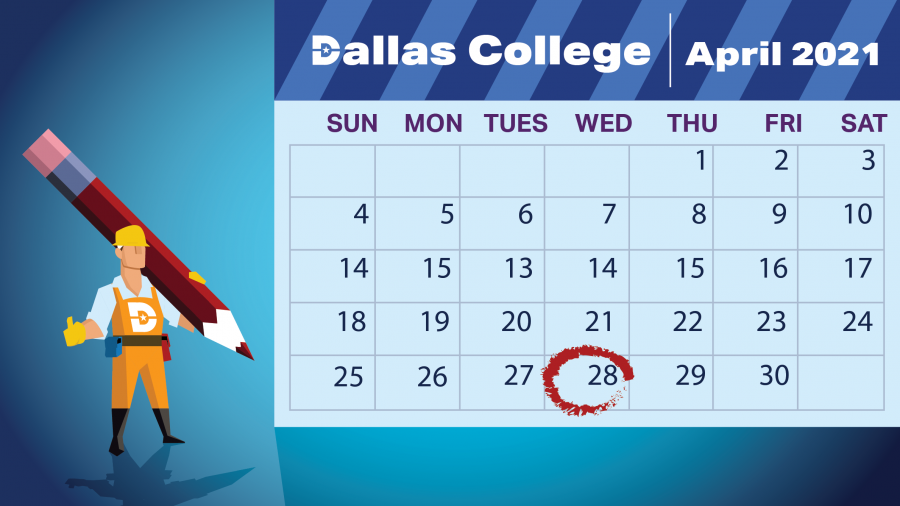By HARRIET RAMOS
Current student registration for summer and fall classes began April 20 with the first fully Dallas College schedule.
The schedule was built with a new system using an academic scheduling team instead of going through individual departments as was done in the past.
Provost Shawnda Floyd said she thinks the new system helped create a more accurate schedule that reflects students’ needs.
“I called [the previous system] the scattershot approach,” Floyd said. “We threw everything at the wall and just said ‘put this in the schedule, put that in the schedule’ with no real data or no real sort of process for that, to just see what would stick.”
The summer and fall schedules were created using algorithms based on data from previous enrollment patterns and surveys sent out to faculty and students. Floyd said the goal is to prevent the massive class cancellations that happened with the old system and build a “student-centric” schedule.
Some faculty have reported problems with the new system.
“The new scheduling system is a little confusing for faculty right now,” said Eastfield English faculty member Shazia Ali. “But then all new systems may be confusing, and we did anticipate the first time might be a little messy.”
Eastfield biology faculty member Jessica Kerins described the process as “glitchy.” She said the initial schedule she received included a microbiology class with a two hour lecture and an 80 minute lab, the opposite of what it was supposed to be.
Another one of her courses was scheduled as a face-to-face lecture and an online lab which overlapped with the lecture at times.
“It made no sense,” Kerins said.
Another problem with the system Kerins said she saw was that course sequences were not taken into consideration when building the schedule.
Course sequences are two or three courses that have to be taken in a certain order.
Students who take the first level of a course with an instructor often want to take the next level with the same instructor.
There was no place on the survey sent to faculty to request the sequence, Kerins said. In the initial schedule she was given, she was assigned Anatomy and Physiology I for the fall, but not Anatomy and Physiology II. Any of her previous students who want to take that class with her will have to hope she is scheduled to teach it in the spring of 2022.
“I think we need to consider the entire school year, not just one semester at a time, when assembling schedules so we can accommodate course sequences like this,” Kerins said.
Floyd said putting the new schedule together involved 20,000 classes for fall and between 9,000 and 12,000 for summer.
“Glitches I would say came in terms of . . . how we were working with one another as one college,” she said. “Deans and department chairs were all new, the process was new, coordinators were gone. So that’s a whole lot of new.”
In the past, faculty coordinators on each campus were responsible for putting together the initial schedule for each semester based on what they saw their students needed. Then the initial schedule was approved or changed by the deans as needed.
Floyd said in the new Dallas College leadership structure, they decided to take the faculty coordinators out of the process and turn the responsibility over to the deans and department chairs, who report to the Dallas College academic scheduling team.
“We really wanted faculty to be able to do their role, which is teach students,” Floyd said. “Not be quasi administrators.”
Even though Ali’s initial experience with the new scheduling system was confusing, she said the dean and the chair in the English department were in regular communication with the professors, which helped the process go more smoothly.
“They immediately reached out and individually emailed each faculty their correct schedules,” she said.
Kerins said her scheduling issues were finally resolved after communicating with her department dean and chair.
“I’m sure it will take a few iterations until this process is seamless,” Kerins said. “But I feel confident that eventually things will run more smoothly.”







